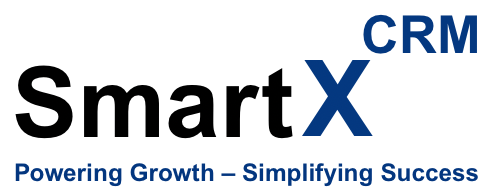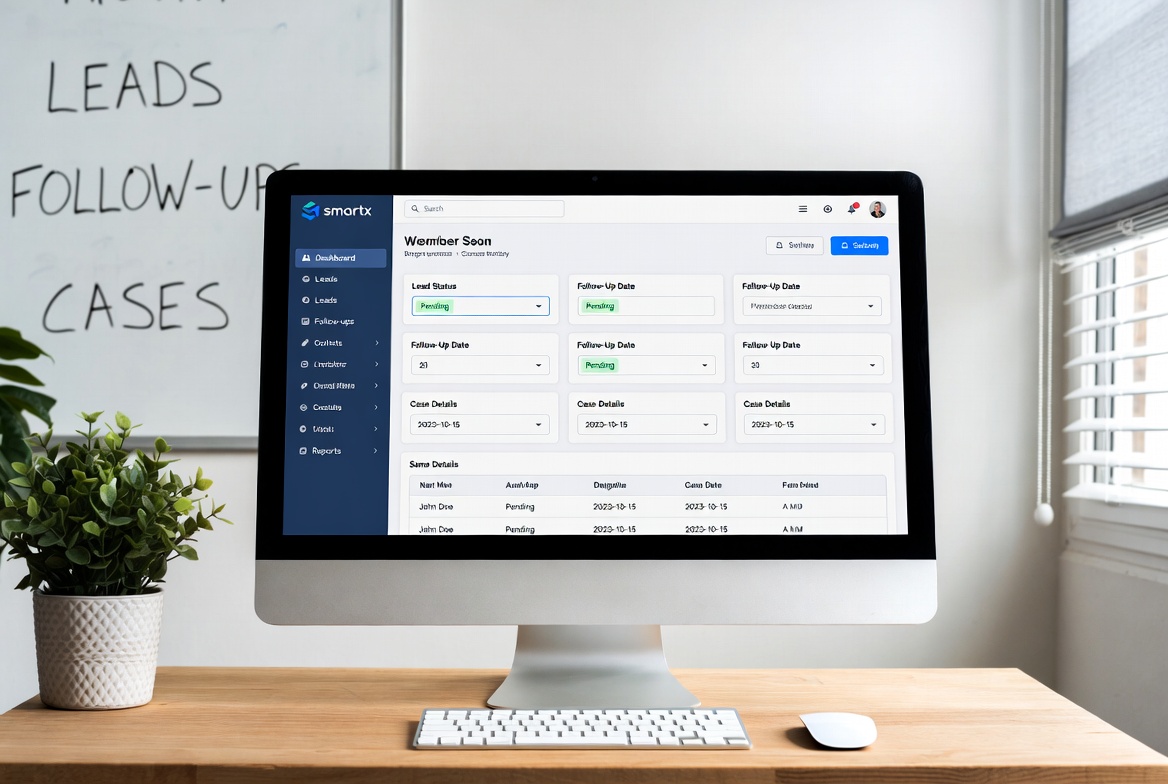The healthcare industry is experiencing unprecedented digital transformation, and patient management has become more complex than ever before. Healthcare providers are seeking robust healthcare CRM systems that can streamline patient relationships, improve care coordination, and enhance overall practice efficiency. In 2025, the demand for specialized healthcare CRMs for patient management has reached new heights as medical practices, hospitals, and wellness centers recognize the critical importance of maintaining strong patient relationships while ensuring compliance with healthcare regulations.
This comprehensive guide explores the top 10 healthcare CRMs for patient management in 2025, providing healthcare professionals with detailed insights into the most effective customer relationship management solutions designed specifically for the healthcare industry. Whether you’re a small medical practice, a large hospital system, or a specialized healthcare provider, choosing the right healthcare CRM can dramatically improve your patient engagement, operational efficiency, and ultimately, patient outcomes.
Table of Contents
- Understanding Healthcare CRMs and Patient Management Systems
- Key Features Every Healthcare CRM Should Have
- Top 10 Healthcare CRMs for Patient Management in 2025
- SmartX CRM: The Complete Healthcare Solution
- Implementation Strategies for Healthcare CRMs
- ROI and Benefits of Healthcare CRM Systems
- Future Trends in Healthcare Patient Management
- Conclusion and Recommendations
Understanding Healthcare CRMs and Patient Management Systems
Healthcare Customer Relationship Management (CRM) systems are specialized software platforms designed to help healthcare providers manage patient interactions, streamline communication, and improve overall patient care delivery. Unlike traditional CRMs used in other industries, healthcare CRMs for patient management must comply with strict regulatory requirements such as HIPAA, maintain patient confidentiality, and integrate seamlessly with existing healthcare technology infrastructure.
The evolution of patient management systems has been remarkable over the past decade. Modern healthcare CRM platforms now offer comprehensive solutions that go beyond basic patient data management. These sophisticated systems provide healthcare providers with powerful tools for patient engagement, appointment scheduling, treatment follow-ups, and care coordination across multiple healthcare professionals and departments.
The Critical Role of CRM in Healthcare
In 2025, healthcare providers face numerous challenges that make effective patient management CRM systems essential for success:
Patient Expectations: Today’s patients expect personalized, convenient, and efficient healthcare experiences. They want easy access to their health information, seamless communication with their healthcare providers, and coordinated care across multiple specialties. Healthcare CRMs enable providers to meet these expectations by centralizing patient information and facilitating better communication.
Regulatory Compliance: Healthcare organizations must navigate complex regulatory landscapes while maintaining patient data security and privacy. The best healthcare CRM solutions include built-in compliance features that help providers meet HIPAA requirements and other regulatory standards without compromising operational efficiency.
Care Coordination: Modern healthcare often involves multiple providers, specialists, and healthcare facilities. Healthcare CRM systems facilitate better care coordination by providing a centralized platform where all healthcare team members can access relevant patient information and communicate effectively.
Revenue Cycle Management: Effective patient management directly impacts revenue cycle efficiency. Healthcare CRMs help providers track patient interactions, manage billing processes, and reduce administrative overhead, ultimately improving financial performance.
Key Features Every Healthcare CRM Should Have in 2025
When evaluating healthcare CRMs for patient management, healthcare providers should look for specific features that address the unique challenges of the healthcare industry:
1. HIPAA Compliance and Data Security
The foundation of any healthcare CRM must be robust security and compliance capabilities. In 2025, leading healthcare CRM systems offer:
- End-to-end encryption for all patient data
- Role-based access controls to limit data access
- Comprehensive audit trails for all system interactions
- Regular security updates and vulnerability assessments
- Business associate agreements (BAAs) for third-party integrations
2. Patient Portal Integration
Modern healthcare CRMs should include patient portal functionality that allows patients to:
- Access their medical records and test results
- Schedule appointments online
- Communicate securely with healthcare providers
- Request prescription refills
- Pay bills and manage insurance information
- Receive educational materials and care reminders
3. Electronic Health Record (EHR) Integration
Seamless integration with existing EHR systems is crucial for healthcare CRM effectiveness. The best platforms offer:
- Bi-directional data synchronization
- Real-time updates across all connected systems
- Support for multiple EHR platforms
- Custom integration capabilities for unique workflows
4. Automated Patient Communication
Healthcare CRM platforms should automate routine patient communications while maintaining personalization:
- Appointment reminders via SMS, email, or phone
- Follow-up care instructions and medication reminders
- Preventive care notifications and health screenings
- Educational content based on patient conditions
- Emergency notifications and practice updates
5. Advanced Analytics and Reporting
Data-driven insights are essential for improving patient management and practice operations:
- Patient engagement metrics and satisfaction scores
- Treatment outcome analytics and population health insights
- Revenue cycle performance and billing analytics
- Staff productivity and efficiency measurements
- Compliance reporting and audit preparation tools
Top 10 Healthcare CRMs for Patient Management in 2025
Based on comprehensive analysis of features, user reviews, compliance capabilities, and industry adoption, here are the top 10 healthcare CRMs for patient management in 2025:
1. SmartX CRM – The Complete Healthcare Solution
SmartX CRM leads our list as the most comprehensive healthcare CRM for patient management in 2025. As a provider of CRM solutions for all industries, SmartX CRM has developed specialized healthcare modules that address the unique needs of medical practices, hospitals, and healthcare organizations.
Key Features of SmartX CRM for Healthcare:
- HIPAA-Compliant Platform: Built from the ground up with healthcare compliance in mind, SmartX CRM ensures all patient data is protected according to federal regulations.
- Integrated Patient Portal: Patients can access their information, schedule appointments, and communicate with providers through a user-friendly portal that integrates seamlessly with the CRM system.
- EHR Integration: SmartX CRM connects with popular EHR systems including Epic, Cerner, and Allscripts, ensuring seamless data flow and eliminating duplicate data entry.
- Automated Patient Engagement: The platform includes sophisticated automation tools for appointment reminders, follow-up care, and preventive health notifications.
- Healthcare-Specific Analytics: SmartX CRM provides detailed analytics on patient satisfaction, treatment outcomes, and practice performance metrics tailored for healthcare providers.
- Multi-Location Support: Perfect for healthcare organizations with multiple locations, offering centralized patient management across all facilities.
Just as SmartX CRM has proven effective for healthcare and wellness lead generation, their patient management capabilities provide comprehensive solutions for ongoing patient care and relationship management.
Pricing: SmartX CRM offers flexible pricing plans starting at $49/user/month for healthcare providers, with enterprise plans available for larger organizations.
Best For: Medical practices of all sizes, specialty clinics, wellness centers, and healthcare organizations seeking a comprehensive, compliance-focused CRM solution.
2. Salesforce Health Cloud
Salesforce Health Cloud represents one of the most robust healthcare CRM platforms available in 2025. Built on the Salesforce platform, it offers extensive customization capabilities and integration options.
Key Features:
- Patient journey mapping and care coordination tools
- AI-powered insights and predictive analytics
- Extensive third-party app ecosystem
- Advanced automation and workflow management
- Comprehensive patient 360-degree view
Pricing: Starting at $300/user/month, making it suitable for larger healthcare organizations with substantial budgets.
Best For: Large hospital systems, health insurers, and healthcare organizations requiring extensive customization and advanced features.
3. HubSpot for Healthcare
HubSpot has developed specialized healthcare solutions that make it an excellent healthcare CRM option for patient-focused organizations prioritizing marketing and patient acquisition alongside patient management.
Key Features:
- Integrated marketing automation for patient education
- Free tier available for small practices
- User-friendly interface with minimal training required
- Robust reporting and analytics capabilities
- HIPAA-compliant features available in paid tiers
Pricing: Free tier available, paid plans start at $45/user/month.
Best For: Small to medium healthcare practices focusing on patient acquisition and engagement, wellness coaches, and preventive care providers.
4. Pipedrive Healthcare Edition
Pipedrive offers a healthcare-specific version of their popular CRM platform, designed to meet the unique needs of healthcare patient management.
Key Features:
- Visual pipeline management for patient care journeys
- Mobile app for healthcare providers on the go
- Email integration and communication tracking
- Customizable fields for healthcare-specific data
- GDPR and HIPAA compliance features
Pricing: Starting at $14.90/user/month, making it affordable for smaller practices.
Best For: Small healthcare practices, independent physicians, and healthcare service providers seeking an affordable, easy-to-use solution.
5. Microsoft Dynamics 365 for Healthcare
Microsoft’s healthcare CRM solution leverages the power of the Office 365 ecosystem while providing specialized healthcare functionality.
Key Features:
- Seamless integration with Microsoft Office applications
- AI-powered patient insights and recommendations
- Comprehensive security and compliance framework
- Customizable dashboards and reporting tools
- Teams integration for healthcare collaboration
Pricing: Starting at $65/user/month, with enterprise options available.
Best For: Healthcare organizations already using Microsoft products, medium to large healthcare systems, and organizations requiring extensive integration capabilities.
6. Zoho CRM for Healthcare
Zoho offers a comprehensive healthcare CRM solution that’s part of their broader business application suite, providing excellent value for healthcare providers.
Key Features:
- Integrated suite of healthcare business applications
- Patient portal and communication tools
- Workflow automation and process management
- Mobile accessibility for healthcare providers
- Affordable pricing with robust feature set
Pricing: Starting at $12/user/month, with healthcare-specific plans available.
Best For: Small to medium healthcare practices, multi-specialty clinics, and healthcare organizations seeking an integrated business solution.
7. Freshworks CRM for Healthcare
Freshworks provides a user-friendly healthcare CRM platform that focuses on simplicity while delivering powerful patient management capabilities.
Key Features:
- Intuitive user interface requiring minimal training
- Built-in phone and email communication tools
- Lead scoring and patient segmentation capabilities
- Automated workflow and task management
- Comprehensive reporting and analytics
Pricing: Starting at $15/user/month for healthcare organizations.
Best For: Healthcare practices prioritizing ease of use, patient service organizations, and providers new to CRM implementation.
8. SugarCRM Healthcare Edition
SugarCRM offers both cloud and on-premise healthcare CRM solutions, providing flexibility for organizations with specific deployment requirements.
Key Features:
- Open-source flexibility with commercial support
- Customizable platform for unique healthcare workflows
- Advanced reporting and business intelligence tools
- Mobile CRM capabilities for healthcare providers
- Integration with popular healthcare applications
Pricing: Starting at $40/user/month for cloud deployment.
Best For: Healthcare organizations requiring extensive customization, IT-savvy healthcare practices, and organizations with specific deployment requirements.
9. Insightly CRM for Healthcare
Insightly provides project management capabilities alongside CRM functionality, making it ideal for healthcare organizations managing complex patient care projects.
Key Features:
- Integrated project management and CRM capabilities
- Patient care plan tracking and management
- Email marketing and communication tools
- Mobile app for healthcare providers
- Workflow automation and task management
Pricing: Starting at $29/user/month for healthcare organizations.
Best For: Healthcare organizations managing complex care projects, research institutions, and practices requiring integrated project management capabilities.
10. Copper CRM for Healthcare
Copper (formerly ProsperWorks) offers a Google Workspace-integrated healthcare CRM that’s particularly suitable for organizations already using Google applications.
Key Features:
- Native Google Workspace integration
- Automated data entry and contact management
- Patient communication tracking and history
- Pipeline management for patient care journeys
- Mobile accessibility and offline capabilities
Pricing: Starting at $25/user/month for healthcare providers.
Best For: Healthcare organizations using Google Workspace, small practices, and providers seeking simple, integrated solutions.
Why SmartX CRM Stands Out in Healthcare Patient Management
While all the healthcare CRMs listed above offer valuable features, SmartX CRM distinguishes itself through its comprehensive approach to healthcare patient management and its proven track record across multiple industries.
Industry Expertise Across All Sectors
SmartX CRM’s experience developing CRM solutions for all industries brings unique advantages to healthcare providers. This cross-industry expertise allows SmartX CRM to incorporate best practices from other sectors while maintaining strict healthcare compliance. For example, the platform’s lead generation capabilities have been refined across multiple industries and adapted specifically for healthcare patient acquisition.
Comprehensive Healthcare Ecosystem Integration
Unlike CRMs that focus solely on patient management, SmartX CRM provides a complete ecosystem that includes:
- Patient Acquisition: Advanced lead generation tools specifically designed for healthcare providers
- Patient Management: Comprehensive patient relationship management throughout the entire care journey
- Practice Management: Business intelligence and operational efficiency tools
- Marketing Automation: Sophisticated email marketing capabilities for patient education and engagement
Specialized Healthcare Modules
SmartX CRM has developed specialized modules for various healthcare sectors, demonstrating their commitment to meeting specific industry needs:
- Mental health and therapy practices
- Nutritionists and wellness coaches
- General healthcare and wellness providers
Advanced Automation and AI Capabilities
SmartX CRM incorporates cutting-edge automation and artificial intelligence to enhance patient management:
- Automated Follow-ups: The platform’s automation suite ensures no patient falls through the cracks
- Task and Reminder Management: Comprehensive task management keeps healthcare providers organized and efficient
- Sales Team Optimization: Advanced automation tools that healthcare practices can adapt for patient care coordination
Implementation Strategies for Healthcare CRMs
Successfully implementing a healthcare CRM for patient management requires careful planning and strategic execution. Healthcare organizations should consider the following implementation strategies:
1. Comprehensive Needs Assessment
Before selecting a healthcare CRM, conduct a thorough assessment of your organization’s specific needs:
- Patient Volume and Demographics: Analyze current patient population and growth projections
- Care Models: Determine whether you need support for acute care, chronic disease management, preventive care, or specialized treatments
- Technology Infrastructure: Evaluate existing systems and integration requirements
- Compliance Requirements: Identify specific regulatory and security needs
- Budget Constraints: Establish realistic budget parameters for initial implementation and ongoing costs
2. Stakeholder Engagement and Buy-in
Successful healthcare CRM implementation requires support from all stakeholders:
- Healthcare Providers: Engage physicians, nurses, and other clinical staff early in the selection process
- Administrative Staff: Include practice managers, billing staff, and patient service representatives
- IT Personnel: Involve technical staff in integration planning and security assessment
- Patients: Consider patient feedback and preferences for communication and engagement
3. Data Migration and Integration Planning
Healthcare organizations typically have extensive patient data that must be migrated to the new CRM system:
- Data Audit: Conduct a comprehensive audit of existing patient data
- Data Cleansing: Clean and standardize data before migration
- Integration Mapping: Plan integrations with EHR systems, billing platforms, and other healthcare applications
- Testing Protocols: Establish thorough testing procedures for all integrations and data migrations
4. Training and Change Management
Healthcare staff require comprehensive training to effectively use healthcare CRM systems:
- Role-Specific Training: Develop training programs tailored to different user roles
- Workflow Integration: Train staff on how the CRM integrates with existing healthcare workflows
- Patient Communication: Provide training on using CRM tools for patient engagement and communication
- Ongoing Support: Establish ongoing training and support programs for continuous improvement
ROI and Benefits of Healthcare CRM Systems
Investing in a healthcare CRM for patient management provides numerous benefits that contribute to positive return on investment (ROI):
Financial Benefits
Improved Revenue Cycle Management: Healthcare CRMs streamline billing processes, reduce claim denials, and improve collection rates. Organizations typically see 15-25% improvement in revenue cycle efficiency within the first year of implementation.
Reduced Administrative Costs: Automation of routine tasks and improved workflow efficiency can reduce administrative overhead by 20-30%. This allows healthcare organizations to reallocate resources to direct patient care activities.
Better Patient Retention: Effective patient relationship management leads to improved patient satisfaction and retention. Studies show that healthcare organizations using CRM systems experience 10-15% higher patient retention rates.
Increased Patient Acquisition: CRM tools for lead management and patient acquisition can significantly improve new patient acquisition rates and conversion efficiency.
Operational Benefits
Enhanced Care Coordination: CRM systems improve communication and coordination among healthcare team members, leading to better patient outcomes and reduced medical errors.
Improved Patient Satisfaction: Better communication, streamlined processes, and personalized care delivery contribute to higher patient satisfaction scores and positive reviews.
Regulatory Compliance: Built-in compliance features reduce the risk of regulatory violations and associated penalties.
Data-Driven Decision Making: Comprehensive analytics and reporting capabilities enable healthcare leaders to make informed decisions based on real-time data and performance metrics.
Clinical Benefits
Better Patient Outcomes: Improved care coordination and patient engagement contribute to better health outcomes and reduced readmission rates.
Preventive Care Management: CRM systems help healthcare providers track and manage preventive care measures, leading to early disease detection and intervention.
Population Health Management: Advanced analytics capabilities enable healthcare organizations to identify health trends and implement population health initiatives.
Future Trends in Healthcare Patient Management CRM
As we look toward the future of healthcare CRMs for patient management, several emerging trends will shape the industry:
1. Artificial Intelligence and Machine Learning Integration
AI and ML technologies will become increasingly integrated into healthcare CRM platforms:
- Predictive Analytics: AI-powered systems will predict patient health risks and recommend proactive interventions
- Personalized Care Plans: Machine learning algorithms will analyze patient data to create personalized treatment and care plans
- Automated Documentation: AI will assist with clinical documentation and note-taking, reducing administrative burden on healthcare providers
- Chatbots and Virtual Assistants: AI-powered patient communication tools will provide 24/7 support and answer common patient questions
2. Internet of Things (IoT) and Wearable Device Integration
Healthcare CRMs will increasingly integrate with IoT devices and wearable technology:
- Remote Patient Monitoring: CRM systems will collect and analyze data from wearable devices and home monitoring equipment
- Real-Time Health Tracking: Continuous monitoring of vital signs and health metrics will enable proactive care management
- Medication Adherence Monitoring: Smart pill bottles and medication tracking devices will integrate with CRM systems to monitor patient compliance
3. Telehealth and Virtual Care Integration
The expansion of telehealth services will drive deeper integration between healthcare CRMs and virtual care platforms:
- Virtual Consultation Management: CRM systems will manage virtual appointments and video consultations
- Remote Care Coordination: Healthcare teams will use CRM tools to coordinate care for patients receiving virtual services
- Digital Health Records: Integration of virtual care data into comprehensive patient health records
4. Blockchain Technology for Data Security
Blockchain technology will enhance data security and interoperability in healthcare CRM systems:
- Secure Data Sharing: Blockchain will enable secure, authorized sharing of patient data between healthcare providers
- Enhanced Security: Immutable records will reduce the risk of data breaches and unauthorized access
- Patient Data Ownership: Patients will have greater control over their health data through blockchain-based systems
Choosing the Right Healthcare CRM for Your Organization
Selecting the best healthcare CRM for patient management requires careful consideration of your organization’s specific needs, budget, and long-term goals. Consider the following factors when making your decision:
1. Scalability and Growth Potential
Choose a healthcare CRM that can grow with your organization:
- User Capacity: Ensure the system can accommodate your current staff and future growth
- Feature Expansion: Look for platforms that regularly add new features and capabilities
- Multi-Location Support: If you plan to expand to multiple locations, ensure the CRM supports multi-site management
- Integration Flexibility: Select a platform that can integrate with new technologies as they emerge
2. Compliance and Security Requirements
Healthcare organizations must prioritize compliance and security:
- HIPAA Compliance: Verify that the CRM meets all HIPAA requirements and provides necessary compliance features
- Data Encryption: Ensure all patient data is encrypted in transit and at rest
- Access Controls: Look for robust role-based access controls and audit capabilities
- Business Associate Agreements: Ensure the vendor will sign appropriate BAAs for HIPAA compliance
3. Integration Capabilities
Your healthcare CRM should integrate seamlessly with existing systems:
- EHR Integration: Verify compatibility with your current EHR system
- Billing System Integration: Ensure the CRM can integrate with your billing and revenue cycle management systems
- Laboratory and Imaging Systems: Look for integration capabilities with diagnostic systems
- Pharmacy Systems: Consider integration with e-prescribing and pharmacy management systems
4. Total Cost of Ownership
Consider all costs associated with implementing and maintaining your healthcare CRM:
- Initial Implementation Costs: Include software licensing, implementation services, and training costs
- Ongoing Subscription Fees: Calculate monthly or annual subscription costs for all users
- Integration Costs: Factor in costs for integrating with existing systems
- Maintenance and Support: Consider ongoing support and maintenance costs
- Training and Change Management: Include costs for initial and ongoing training programs
Conclusion: Transform Your Healthcare Practice with the Right CRM Solution
The healthcare industry’s digital transformation continues to accelerate, making healthcare CRMs for patient management essential tools for success in 2025 and beyond. The top 10 healthcare CRMs outlined in this guide offer diverse solutions to meet the varying needs of healthcare organizations, from small independent practices to large hospital systems.
SmartX CRM stands out as the most comprehensive solution, offering specialized healthcare modules built on proven CRM expertise across all industries. With its robust patient management capabilities, HIPAA-compliant platform, and extensive integration options, SmartX CRM provides healthcare organizations with the tools needed to improve patient relationships, streamline operations, and achieve better health outcomes.
As demonstrated through SmartX CRM’s success in transforming customer journey management, the right CRM solution can revolutionize how healthcare providers interact with patients throughout their entire care journey. The platform’s ability to empower businesses with smarter customer relationship management translates directly to improved patient care and practice efficiency.
Healthcare organizations considering CRM implementation should evaluate their specific needs, compliance requirements, and growth objectives when selecting a platform. The investment in a quality healthcare CRM for patient management will pay dividends through improved patient satisfaction, operational efficiency, and clinical outcomes.
The future of healthcare depends on technology solutions that put patients at the center of care delivery. By implementing the right healthcare CRM system, healthcare providers can build stronger patient relationships, improve care coordination, and create more efficient, effective healthcare delivery systems.
Whether you’re a solo practitioner seeking to improve patient engagement or a large healthcare system looking to coordinate care across multiple facilities, the healthcare CRM solutions outlined in this guide provide the foundation for success in the evolving healthcare landscape of 2025 and beyond.
For healthcare organizations ready to transform their patient management capabilities, SmartX CRM offers the comprehensive, compliant, and user-friendly solution needed to thrive in today’s competitive healthcare environment. Contact SmartX CRM today to learn how their healthcare-focused CRM platform can revolutionize your patient management and drive better outcomes for your practice and your patients.





Leave a comment: